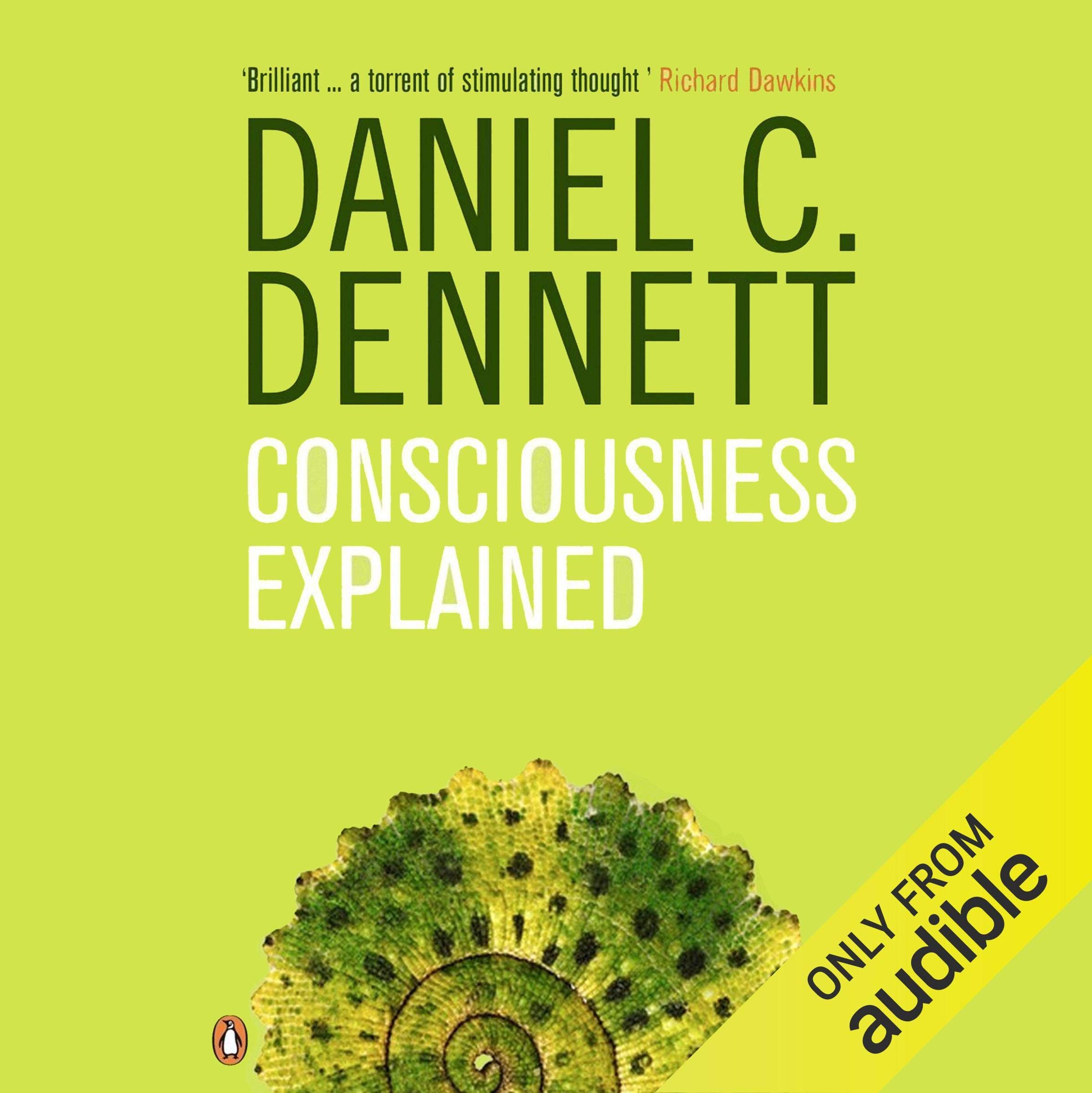As expected from a Dennett book, once you commence you better pack your intellectual suitcase and prepare for a journey. It's a difficult read, and at best I hope that my review can you (the hopefully interested reader) to see and possibly recognize a lot of the topics discussed as I simply lay them out.
In the book, the author sets out to, as he put it on page 16, explain consciousness and the various phenomena that compose to what we call consciousness by showing how they are physical effects in the brain. He claims that he will provide relevant scientific facts, series of stories, analogies, thought experiments, etc.
I'll briefly explain what kind of things where talked about in each PART (not chapter). Note this this is not inclusive because this book is very comprehensive and intricate. This is just a subjectively-motivated outline of [objective] topics I found interesting.
Prelude: How are hallucinations possible?
- Thought experiments like the "brain in a vat" and "a party game called psychoanalysis"
Part 1: Problems And Methods
- Elucidates the mystery behind consciousness
- The appeal to mystification in conjunction to it
- Dualism and it's unreliability
- Challenges of explaining such phenomena
- Introduction to phenomenology as well as heterophenomenology
-Methods and perspectives of phenomenology and heterophenomenology
- Shakey robot discussed
Part 2: An Empirical Theory of The Mind
- The inception of terms; The Multiple Drafts Theory and The Cartesian Theater
- Why the Cartesian Theater is the wrong view of consciousness
- Introduction to the Stalinesque (pre-experimental) and Orwellian(post-experimental) theories of conscious mending.
- Time and experience
- Evolution in relation to consciousness
- Memes
- Joycean Machine
Part 3: The Philosophical Problems of Consciousness
- Zombies
- Blindsight: The discussion of and understand of it
- Hide the thimble thought experiment
- Prosthetic vision
- DIALOGS WITH OTTO. The reason I capitalized this is because it is found throughout the book. Otto is a fiction character and contrarian that Dennett imputes as a way to propose and then dismantle many opposing claims (that the author made up, because of course in the process of writing the book and introducing new ideas there obviously weren't any critics to consider). This is a good author with a proposal at his best.
- Qualia (the intangible "stuff")
- Epiphenomenal Qualia (this was very interesting).
- The clever disqualification of both ^^
- The reality of selves and multiple personality disorder
- Imaging a conscious robot
- Analyzing Searle's Chinese Room experiment
- How to be moral with a materialistic view of consciousness, absent of mythology. Why we don't need myth to appreciate things like dead bodies of loved ones more than broken robots. Here I'm going to throw in a quote of his: "Myths about the sanctity of life, or of consciousness, cut both ways. They may be useful in erecting barriers (against euthanasia, against capital punishment, against abortion, against eating meat) to impress the unimaginative, but at the price of offensive hypocrisy or ridiculous self-deception among the more enlightened."
- The possibility of understanding consciousness
Dennett doesn't claim to solve the problem of consciousness, he rather concedes that his explanation is far from complete. Instead he wants to give us a better understanding, approach, and view of consciousness that distills the fear of many that claim that such a vision is impossible. I fall in the category of readers that didn't find it very difficult to imagine perceived consciousness as being an amalgamation of disparate, "non-conscious", comprehensive and complicated workings of the brain. Nevertheless, I found much of what was discussed to be intellectually stimulating, and enlightening; these don't always need to go hand-in-hand. Dennett's vigor and tone congenially complement the difficult read. 4.5/5.

Consciousness Explained
4.4 | 635 ratings
Price: 28.74
Last update: 05-15-2024